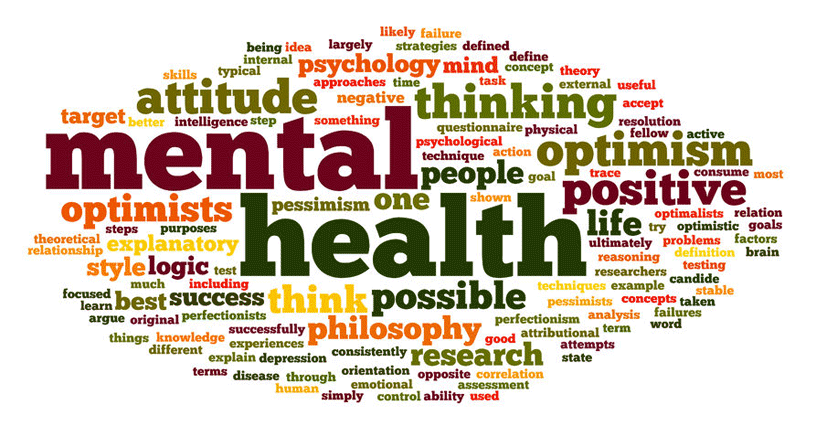Achieving Stability with Reliable Inpatient Mental Health Treatment
Achieving Stability with Reliable Inpatient Mental Health Treatment
Blog Article
Comprehensive Inpatient Mental Health Solutions for Effective Treatment
Inpatient mental health and wellness solutions represent a vital component of the medical care system, supplying a structured and intensive environment for individuals experiencing extreme mental distress. These solutions use a multidisciplinary method, incorporating numerous evidence-based therapies to address the complicated demands of patients. The performance of such comprehensive care extends beyond immediate stabilization; it likewise includes the transition to outpatient support, an important stage usually overlooked - Inpatient Mental Health Program. Discovering the subtleties of this continuum discloses substantial effects for both individual healing and wider psychological health results. What factors really influence this transition, and how can we enhance its performance?
Recognizing Inpatient Mental Health And Wellness Services
Inpatient psychological health services provide critical assistance for individuals experiencing extreme mental distress that can not be managed properly in an outpatient setup. These services are designed to supply an intensive degree of treatment in a structured atmosphere, commonly within a healthcare facility or specialized facility. People admitted to inpatient programs typically show acute signs, such as suicidal ideation, extreme anxiety, or psychosis, necessitating day-and-night monitoring and intervention.
The admission procedure typically entails an extensive evaluation by mental wellness professionals, that review the individual's psychological state, history, and instant demands. Once admitted, people participate in a range of healing methods tailored to their specific needs, consisting of medication administration, specific therapy, and group sessions. This alternative strategy intends to maintain the patient's condition, promote safety and security, and foster coping abilities.
Inpatient mental health and wellness solutions not just address prompt health issues however additionally function as a bridge to ongoing care. By offering a controlled setting, these solutions promote the development of treatment plans that can be continued in outpatient settings, thus ensuring a continuum of care and improving long-term results for individuals with complicated mental health and wellness requirements.
Secret Elements of Effective Therapy
Efficient therapy in inpatient mental health and wellness solutions comprises a number of essential elements that promote recuperation and stabilization. A comprehensive analysis is crucial to identify the person's details requirements and difficulties. This assessment informs the growth of a customized treatment plan, which acts as a roadmap for intervention.
An additional essential part is the multidisciplinary team approach. Cooperation amongst psychoanalysts, psycho therapists, nurses, and social workers makes certain that different point of views contribute to the person's care, enhancing the effectiveness of treatment. Evidence-based healing techniques, such as cognitive-behavioral treatment (CBT) and dialectical behavior modification (DBT), are additionally important, providing organized methods that address maladaptive idea patterns and behavioral concerns.

Finally, a focus on aftercare preparation is important to ensure a smooth transition to outpatient solutions, lessening the risk of regression and promoting lasting wellness. These cumulative elements develop an efficient treatment structure within inpatient mental health solutions.
Advantages of Comprehensive Care

Thorough care in inpatient mental health and wellness services uses various benefits that dramatically boost patient results. One of the key benefits is the holistic method to therapy, resolving not only the emotional signs and symptoms yet additionally the physical, social, and emotional requirements of people. This complete evaluation permits customized interventions that promote overall well-being.
Another advantage is the assimilation of multidisciplinary teams, which promotes cooperation amongst medical care experts. This joint environment makes sure that people receive coordinated care, reducing the threat of fragmented therapy and boosting interaction among caregivers. Additionally, comprehensive care assists in connection of solutions, enabling seamless changes from inpatient to outpatient settings, which is vital for lasting healing.

Last but not least, the structured setting of comprehensive inpatient care gives a safe space for clients to participate in restorative activities, assisting them create coping approaches and strength. Collectively, these advantages add to extra efficient treatment and improved lifestyle for individuals experiencing psychological health and wellness dilemmas.
Evidence-Based Healing Approaches
In the world of mental wellness you could look here treatment, evidence-based healing methods play a crucial duty in guaranteeing that clients obtain reliable and scientifically supported interventions. These methods incorporate the most effective available study with medical experience and patient worths, fostering a tailored treatment experience that resolves private needs.
Cognitive Behavior Modification (CBT) is among one of the most widely acknowledged evidence-based techniques, focusing on determining and changing unfavorable idea patterns and habits. This structured strategy has demonstrated efficacy in treating conditions such as depression, anxiousness, and PTSD. Likewise, Dialectical Habits Treatment (DBT) is particularly effective for individuals with borderline personality problem, stressing the development of psychological guideline and interpersonal efficiency skills.
In addition, medicine monitoring is frequently an important element of evidence-based therapy, as psychotropic medicines can minimize symptoms and enhance overall performance. Collaborative treatment designs, which include multidisciplinary groups, better boost the efficacy of inpatient solutions by ensuring thorough analyses and constant surveillance.
Eventually, the assimilation of evidence-based restorative strategies not only promotes favorable medical inpatient mental health treatment outcomes but also empowers patients, promoting a sense of firm and strength in their mental wellness trips.
Transitioning to Outpatient Assistance
The change from inpatient mental health solutions to outpatient support notes a crucial stage in an individual's recuperation journey. This duration needs careful preparation and control to ensure continuity of treatment and to alleviate the threats of regression or situation. Efficient discharge planning should begin early in the inpatient remain, including a multidisciplinary team that consists of psychoanalysts, psychologists, nurses, and social employees.
Trick components of a successful change consist over here of the development of a thorough aftercare plan customized to the person's particular demands. This plan ought to lay out follow-up appointments, medicine management, and restorative interventions, as well as determine neighborhood sources and assistance groups that can assist in continuous recuperation.
In addition, individual and family members education is crucial during this stage. Comprehending the signs of potential troubles and the relevance of sticking to therapy can equip patients and their support group.
Regular follow-up and review of the outpatient strategy are important to address developing obstacles. By cultivating a joint connection between outpatient and inpatient service providers, the probability of continual healing boosts, eventually boosting the individual's high quality of life and decreasing the threat of readmission.

Final Thought
In recap, thorough inpatient mental health and wellness solutions use an important framework for attending to serious emotional distress via a multidisciplinary strategy. Inevitably, such comprehensive care is important for long-lasting mental health and wellness and well-being.
The admission process usually entails a comprehensive evaluation by psychological wellness professionals, that examine the individual's mental state, background, and immediate demands.Efficient treatment in inpatient psychological health services comprises numerous crucial components that cultivate healing and stabilization.Detailed care in inpatient psychological health solutions offers numerous benefits that significantly enhance individual outcomes.The change from inpatient mental wellness solutions to outpatient assistance notes an essential stage in a person's recovery journey.In recap, thorough inpatient psychological health solutions offer a crucial framework for dealing with serious emotional distress through a multidisciplinary approach.
Report this page